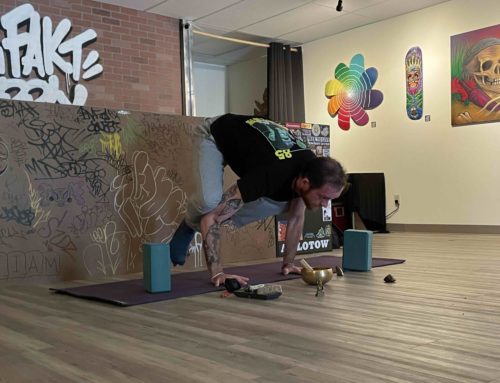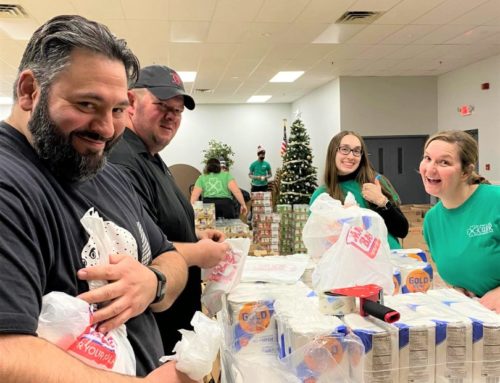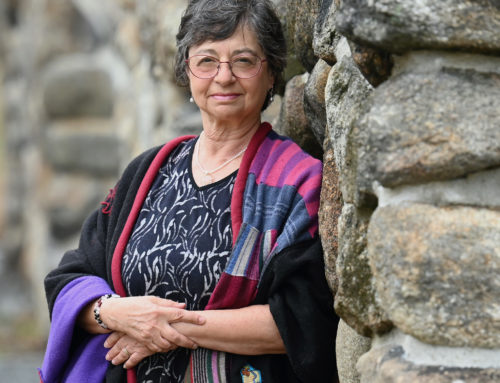WELLESLEY, Mass. — In response to racial injustice, Iris Haastrup-Sanders took matters into her own hands by serving her neighbors. She created the South Side Grocery Pick-Up, a Chicago-based project offering free groceries, hygiene products and hot meals to those in need during last summer’s social justice protests.
In recognition of her commitment, Wellesley College honored her with the fourth annual Camellia Student Leadership Award for on- and off-campus leadership and service. The award recognizes a commitment to community, awareness and engagement.
“It basically started as a response to the George Floyd protests that happened all over the nation, but specifically in Chicago,” said Haastrup-Sanders, who is studying architecture.
Haastrup-Sanders participated in the protest and saw the violence that the Mayor of Chicago was “enacting,” as Haastrup-Sander describes it. Bridges were lifted. Curfews were put in place.
“The next day she said she was stopping the lunch program at the Chicago Public Schools,” Haastrup-Sanders said. “It was viewed as a targeted punishment….In stopping the lunch program, she was specifically targeting lower income Black and brown students, especially during the pandemic when they relied on lunch programs for sustenance.”
And thus, South Side Grocery Pick-Up came into existence.
Haastrup-Sanders received thousands of dollars through donations of social media campaigns. People readily volunteered. She would then go to the market and grab goods to share with those in need.
“I was thinking, what type of change can I make, and how can I make an impact within my community?” Haastrup-Sanders said. “I didn’t expect this wide of a response.”
As businesses within Chicago were being looted and transportation was at a minimum, Haastrup-Sanders saw yet another growing gap in food security.
“For people to specifically go grocery shopping, they need a car. If you don’t have one, it’s hard,” Haastrup-Sanders said.
For the first South Side Grocery Pick-Up, a friend gifted allowed Haastrup-Sanders to borrow her company’s commercial space for inventory and distribution.
“For the first iteration, the entire store was filled with food,” Haastrup-Sanders said. “There was hardly even walking room. There was only one path to walk. It was all filled with produce, water bottles, dried goods and so many other things from community outreach.”
The second iteration was on Juneteenth.
“We used that day as a day of rejoicing and connection to say, ‘We’re free’ but also to think about the modern context,” Haastrup-Sanders said. “We need to continue that message of extending freedom to those that need it.
The initiative set up a block party. The grocery pick-up took place at the Harold Washington Cultural Center. Organizations pitched in, hosting a skateboard raffle and a painting workshop. A restaurant donated a thousand tacos. There was a DJ and snowcones.
“It was just a really big family event,” Haastrup-Sanders said. “It was just a collective rejoicing and relaxing.”
Haastrup-Sanders and her friend would continue to receive donations. They took to street corners, waving signs and promoting that people can take whatever they needed.
“I think there is always food insecurity with the lack of healthy food options, specifically in Black and brown communities,” Haastrup-Sanders said. “Even though there might be a lot of corner stores, there aren’t a lot of healthy food options. And the only healthy food options are expensive, which makes it inaccessible.”
Haastrup-Sanders said that last summer was the perfect juxtaposition for people to recognize the need.
“I think with the pandemic and the racial protests, it was just a lot of things compounding on top of each other.”
Looking to this summer, Haastrup-Sanders wants to figure out a way to continue her initiative. She is thinking of hosting a movie party for her Juneteenth event.
“There were a lot of other organizations that were doing the same thing I was doing at the same time,” Haastrup-Sanders said. “It is a communal effort.”






Leave A Comment